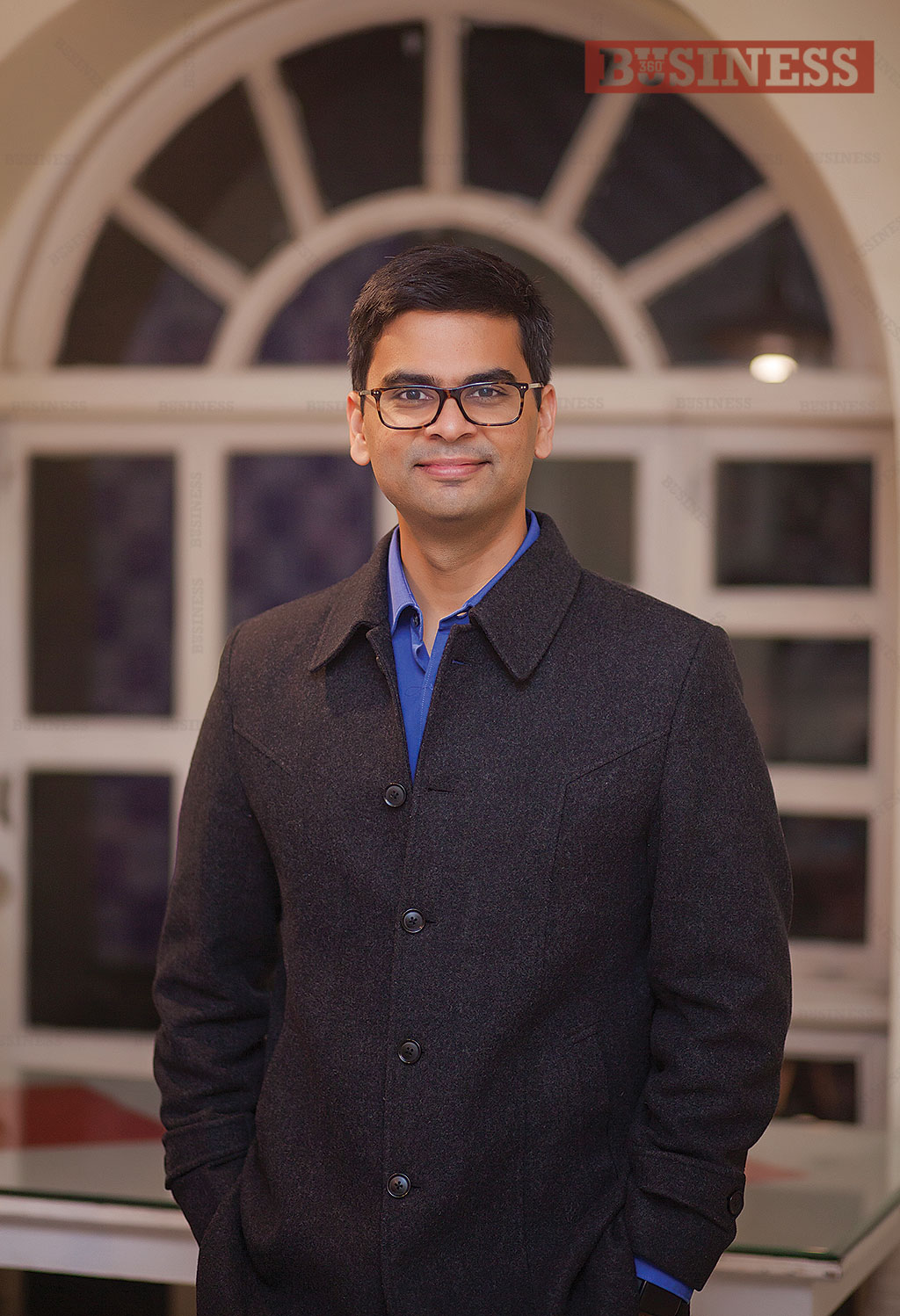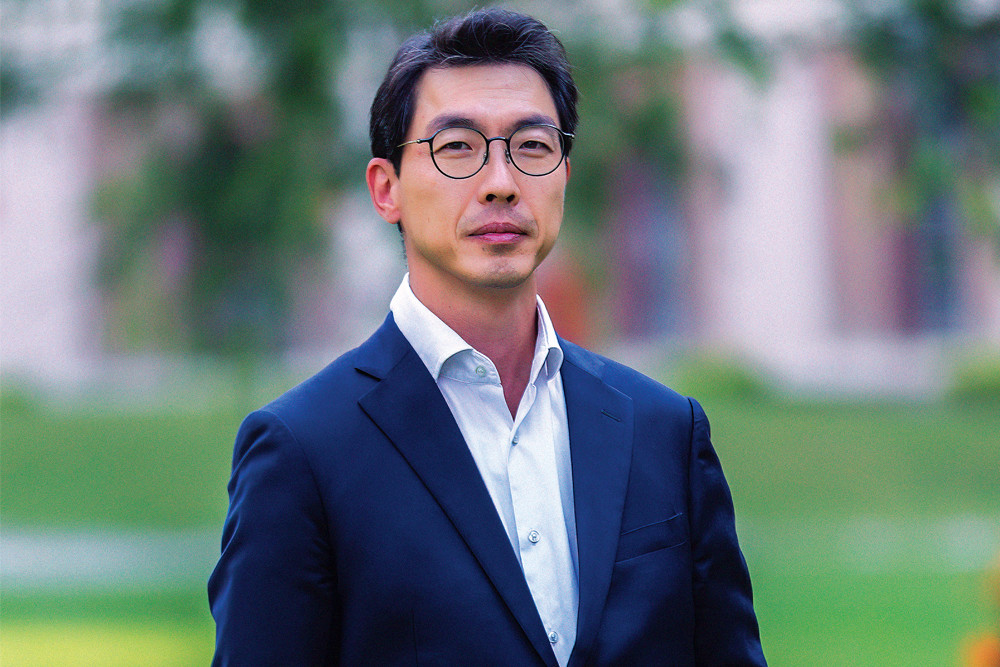
Jeevan Ram Shrestha is the current elected President of Nepal Olympic Committee (NOC). He was re-elected to the post in mid-September. He is also the former Secretary General of the committee and has attended many international sporting events to learn and make plans on behalf of NOC. Further, he holds the position of Nepal Ski Association and Member Secretary of National Sports Council (NSC). He is also Member of the Parliamentary Committee of Youth, Sports, Education and Health.
As a politician, Jeevan Ram Shrestha is affiliated with Nepal Communist Party and is a Parliamentarian. He got involved in politics more than three decades ago as a student leader during college life at Saraswoti Campus, Lainchaur. Shrestha was also the Ward Chairperson of Kathmandu Municipality - 15. “I want to motivate people to follow in my footsteps and participate in social activities to create an impact in the society,” he emphasises during an interview with Dibesh Dangol of B360 regarding the South Asian Games 2019 (SAG) and pressing issues concerning sports and sports development in Nepal. Excerpts:
Can you update us on the management aspect of SAG 2019?
NOC has been affiliated with South Asia Olympic Council to make necessary policies for SAG. We are to supervise and coordinate with Olympic Committees of participating countries regarding the participating athletes and sports-related entourages, issue identity cards of participating athletes and entourage, and accredit them after the sporting event. The overall management of SAG 2019 including accommodation, diet, facilities and transportation are being looked after by a different management committees and sub-committees formed by the Nepal Government and Ministry of Youths and Sports as per the Cabinet’s decision. As far as I know, rebuilding, renovation and construction of stadiums and sports venues are nearly complete in both Kathmandu and Pokhara, and the SAG management committees and sub-committees have already decided and planned the overall aspects.
SAG was supposed to be held in March 2018 and has been postponed twice to now be held from December 1-10. What were the reasons for the delay and what can we learn from it?
When Nepal took the responsibility of hosting the next SAG on Feb 2016 after the closing ceremony of SAG 2016 held in India, Nepal was still suffering from political instability. Whatever work needed to be done to organise SAG in Nepal was not performed either by the previous government or by the new government right after the elections which led to multiple postponements of the sporting event. So few months after the election when everything was finally settling, the Ministry of Youth and Sports along with NOC and NSC submitted a commitment letter to South Asia Olympic Committee in March 2018.
In December, we have no other option than to hold the event no matter what because the sporting event has already been postponed twice. Also, because it’s a matter of the country’s reputation. We shouldn’t lose this opportunity to promote ourselves in the South Asian and international markets. The postponements have already created a negative image of Nepal but we can still rectify our mistakes, create a positive image of Nepal and promote Visit Nepal 2020 tourism campaign through holding SAG 2019 in December. The Ministry has been coordinating with NOC frequently and they have assured us that the overall management and construction processes will be completed before the deadline. In the same light, we have been updating and assuring Olympic committees of participating countries and South Asia Olympic Council about the sporting event.
Through this experience, not only the government and the Ministry of Youth and Sports, but we as in the sporting association and affiliated organisations, parliamentarians, politicians and other Ministries have learned that the political situation of the country - whether it’s stable or unstable - and change in the government shouldn’t hamper the commitments we have taken whether it’s regarding the sports sector or any other. Such activities and events are connected with the country’s reputation and no one is above protecting, maintaining and elevating the country’s reputation.
Construction and renovation of sporting venues have taken speed only in the eleventh hour. Your comments.
We Nepalis have a tendency to do our work in the eleventh hour and we need to eradicate this negative culture. The construction and renovation of the stadiums and sporting venues were delayed due to change in government, but this shouldn’t be an excuse. The ongoing plans and works of the former government should have been transferred seamlessly to the new government and the development works shouldn’t have been halted whether it is the construction of stadiums or any other infrastructure. We - those involved in politics, parliament, ministries, government and sports associations - have learned a great lesson from the postponement and the ongoing eleventh-hour construction of stadiums and sports venues for SAG. The central, provincial and local governments have decided on making plans regarding further construction of stadiums, sports venues, training facilities and recreational areas right after SAG 2019 for execution as soon as possible. I think within 2-4 years there will be a lot of sporting infrastructures all over Nepal.
Because of the delay in construction of stadiums, sporting venues and training facilities, especially our athletes have lost ‘home ground’ advantage.
Can the country expect medals and from which sports in SAG 2019?
There is a high chance of Nepali athletes winning a lot of medals in SAG 2019 and performing better than past SAGs. Though the number of gold medals might be fewer than other medals, our target is to achieve the second position in the overall medal tally. Particularly in martial arts, there is a high probability of Nepali athletes winning medals.
Due to unavailability of training facilities, closed-door camps and regular competitions and tournaments in Nepal, athletes are said to lack a competitive mindset. Last minute trainings and preparations do not help either. Your comments.
I agree that a lot needs to be done in terms of sports management in Nepal. It’s not just up to the athletes to participate and win medals for the country. Behind the scene, there are coaches, assistant coaches, medical and fitness teams, etc. who make the athletes capable to perform and win medals which fall under sports management. Now we are not just concerned about athlete participation; policies that can benefit sports sector should be introduced which will encourage athletes to engage fully in sports without having to find other jobs. Also, sport needs to attract commercial interest and it’s something we are currently working on.

The private sector is said to be ready to invest in sports. Is the government ready to facilitate such partnerships?
Collaboration between the private sector and government is vital in any form of development and indeed, the government alone can’t invest and make sports infrastructures. Examples of such collaboration can be seen globally that has uplifted the sports and the economy of the country. Friendly policies and environment should be created by the government so that the private sector can see the potential of sports in Nepal and invest willingly. Right now, the private sector or companies have been showing their support by sponsoring sporting events only, but if they want to develop and construct stadiums and training grounds, public-private partnership is the correct way to go.
What are your thoughts on internal conflict during selections, corruption in ANFA, NOC and other such organisations for political or personal benefit? Do you plan to address such issues?
Sports and national politics will always be correlated to each other, but there is no room for internal politics, political interferences and nepotism in the sports sector. National politics should be used as a medium to develop the sports sector. The things that create a negative environment in this sector need to be completely eradicated and strict actions should be taken if anyone is found doing so. We have been monitoring and taking strict action against these. We are planning to make the selection process of the athletes in any sport completely transparent so that no one will raise questions or blame us later on.
Nepali athletes are not paid well due to which youth aren’t encouraged or focused on sports as a career. What can be the solution?
It’s mainly about providing opportunities to youths and athletes and developing a positive environment and economy. We, the Parliamentary Committee members, are holding discussions and meetings regarding making correct policies so that youths and athletes would benefit, stay and work in their respective sector or sport, and a profitable business environment and job opportunities can be created around sports sector. But, it is up to the government to pass and implement the policies we have drafted.
Though there are more than 190 sports associations registered in NSC, only 27 member associations are associated with NOC and Nepal barely participates or hosts games in 50 sports. Can you explain this?
Yes, various people have opened up sport associations and registered with NSC. We don’t know whether they are holding a compulsory annual national tournament or not. I have been advocating against such associations who aren’t even meeting basic criteria that a sports association should meet. NSC and the Ministry should be auditing every sports association individually and dissolving the non-functioning associations so that this question will not arise again to anyone representing the sports sector.
Regarding NOC, if a sports association fulfils all our norms like representing an Olympic game and affiliated by respective international federations, only then they can apply for NOC membership.
You are the President of Nepal Ski Association, what is the current situation of this sport in Nepal?
Nepal is known as a Himalayan country but Nepalis aren’t aware of winter sports at all. I started the Nepal Ski Association to develop winter sports, particularly skiing, in Nepal, but we haven’t been able to develop the necessary infrastructure for this sport. Poor and no road connections, elevation difficulties, change in seasons and global warming are the main reasons behind it. Yet we have been trying to promote this sport by bringing experts from Switzerland for surveys around Langtang, Kalinchowk, Manang and Mustang regions so that we can organise occasional, national and international tournaments. Skiing tournaments aren’t easy to organise primarily because it is hard to develop and there are very few appropriate places. Artificial ski parks can be made, but it will be hard for us to sustain because of its operating cost.
This sport has a lot of potential in Nepal but skiing tournaments are difficult to organise mainly because of Nepal’s geographical position and our financial situation. We conduct our tournaments according to the financial support we receive. If we receive additional support from the government and private sector, we can organise international tournaments as well which will put Nepal on the global skiing map.



.jpg)
.jpg)
.jpg)